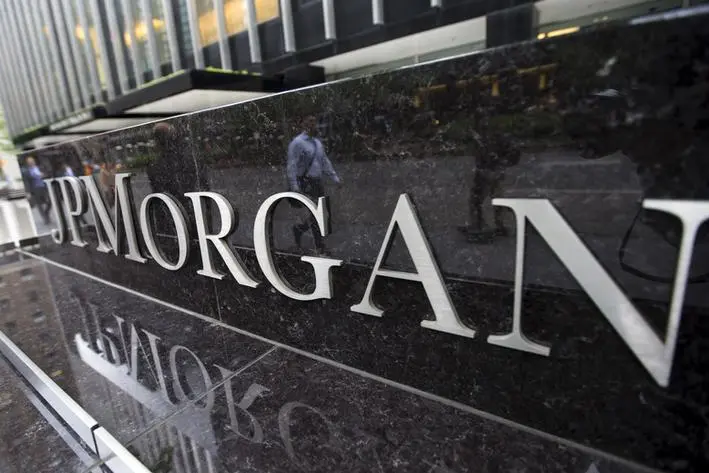PHOTO
DUBAI- Saudi Arabia and four other Gulf states will enter JP Morgan's emerging market government bond indexes next year, a move likely to lure billions of dollars of new foreign investment into their debt, according to a JP Morgan statement sent to investors.
The indexes are key performance benchmarks for international investors in emerging market debt, so membership can help a country sell bonds and reduce its borrowing costs.
Sovereign and quasi-sovereign debt issuers from Saudi Arabia, Qatar, the United Arab Emirates, Bahrain and Kuwait - all members of the Gulf Cooperation Council (GCC) - will become eligible for the EMBI Global Diversified (EMBIGD), EMBI Global (EMBIG) and EURO-EMBIG indexes, according to the statement, seen by Reuters on Wednesday.
Their entry will be phased in between Jan. 31 and Sept. 30, 2019. Both conventional bonds and sukuk, or Islamic bonds, will be eligible for inclusion in indexes, but sukuk will need to have a credit rating from at least one of the three major rating agencies to be included.
Some regional bonds rose on the news, with higher gains on longer-dated debt. Saudi Arabia's $6.5 billion bonds maturing in 2046 were up 1.3 cents , Abu Dhabi's notes due in 2047 were up almost one cent and Bahrain's $900 million 2047 bondssurged 1.5 cents.
JP Morgan's decision follows a surge in debt issuance from the Gulf Arab region in the past few years, as low oil prices force most countries to fund part of their state spending in the international debt markets.
Saudi Arabia, Bahrain, Kuwait, Oman and Qatar have issued a quarter of all new debt sold by emerging market countries in each of the last three years.
"GCC index inclusion is a timely recognition of the fact that issuance from the region represents over 15 percent of the stock of emerging market debt, and provides important diversification benefits," said Mohieddine Kronfol, chief investment officer of Global Sukuk and MENA Fixed Income at Franklin Templeton Investments.
GCC bonds are likely to become more visible to international investors and the inclusion is expected to "significantly increase the size of the investible emerging-market universe and allow investors to consider GCC bonds when they want to reduce risk in a flight to quality – potentially reducing the volatility of emerging market bond portfolio flows," he added.
The move will lead to a further big flow of foreign money into Saudi assets, after this year’s decision by MSCI and FTSE Russell to include its stock market in emerging market indexes, which is expected to draw about $40 billion into Saudi equities.
The inclusion of GCC countries in the bond indexes will leave them representing around 11.2 percent of JP Morgan's EMBI Global Diversified and EMBI Global series, the statement said.
"It is estimated that around $360 billion of assets under management are benchmarked against the EMBIG family, with the EMBIG diversified at around $300 billion," said Zeina Rizk, director of fixed income asset management at Arqaam Capital in Dubai.
Rizk estimated this would translate into about $30 billion of inflows into the five countries' debt.
"Those inflows are not going to come on day one, but the tailwind resulting from the inclusion headline, coupled with pegged currencies, strong oil prices, a relative immunity from trade wars and high credit quality, leads us to the view that the GCC has better value than the rest of emerging markets."
The minimum size for inclusion in the indexes is $500 million, and during the inclusion process, instruments will need to have a maturity date beyond March 2022, the statement said.
According to Jean-Michel Saliba, MENA economist at Bank of America Merrill Lynch, Bahrain - the weakest credit in the region - is the biggest beneficiary among the Gulf states included.
"This will provide not only large flows as a percentage of debt outstanding, but is also likely to be crucial for future external financing needs," he said.
(Additional reporting by Saeed Azhar; Editing by Andrew Torchia and Mark Potter) ((Davide.Barbuscia@thomsonreuters.com; +971522604297; Reuters Messaging: davide.barbuscia.reuters.com@reuters.net))





















